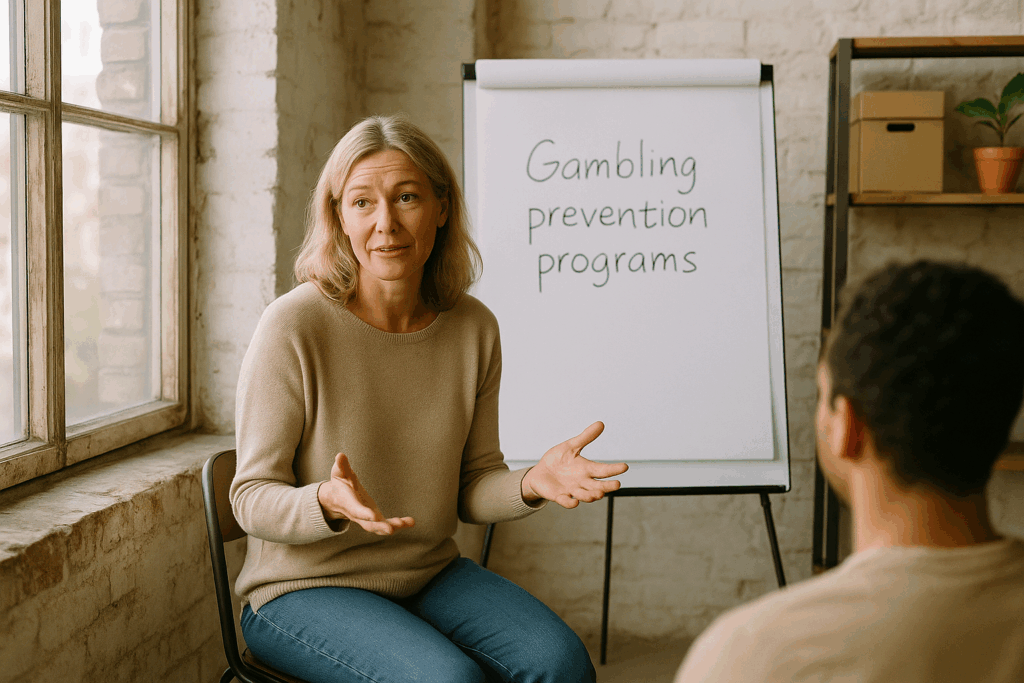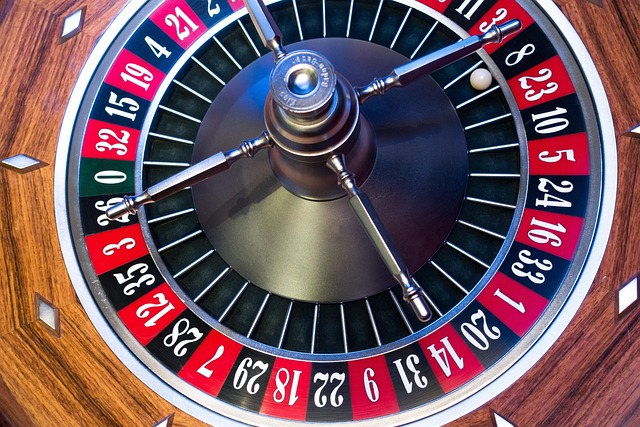Why Control Matters More Than Luck
Staying in control while betting isn’t about luck—it’s about maintaining clear boundaries and understanding why you’re betting in the first place. Without that clarity, what starts as casual entertainment can quickly turn into a harmful habit.
Betting Is Meant for Entertainment
Betting should be enjoyable, not stressful. It’s an optional pastime, not a financial strategy. The moment it starts feeling like more than fun, that’s a signal to reassess your relationship with it.
- Ask yourself: “Would I still be doing this if there were no chance of winning?”
- Remind yourself: no bet is ever a sure thing, and the odds are never in your favor long-term
Fun vs. Fixation
There’s a fine line between healthy engagement and unhealthy repetition. When betting becomes habitual or emotionally driven, it loses its recreational value.
Watch for these signs of fixation:
- Thinking constantly about your next bet
- Betting even when you’d planned not to
- Using betting as a distraction from stress, boredom, or other emotions
Recognize the Red Flags Early
Loss of control often starts subtly. The sooner you catch the signs, the easier it is to course-correct.
Be aware of:
- Ignoring limits you’ve set for yourself
- Chasing losses to “make things right”
- Hiding your betting behavior from others
Taking even small steps to recognize and respond to these warnings can make a major difference. Betting can stay fun—but only if you’re the one in control.
Tip 1: Set Clear Time and Money Limits
If you’re betting without a limit, you’re not really in control—you’re just reacting. Start with a simple rule: set a weekly or session-based bankroll. That means deciding in advance how much you’re willing to lose. Not how much you hope to win. The money should come from your entertainment bucket, never from essentials like rent or food. Once it’s gone, you stop. No reloads.
Next, bring a timer into the mix. Sessions shouldn’t stretch on until you’re blurry-eyed and clicking without thought. Set a hard stop—30 minutes, maybe an hour—whatever keeps your mind sharp and the habit in check. It’s not about maximizing playtime. It’s about staying present.
Then follow the three-limits rule: time, money, and emotion. Set the first two before you start—commit to how long you’ll bet and how much you’ll spend. The third is trickier: your emotional state. If you’re chasing a loss, feeling numb, or amped up from a win, those are red flags. Stop. Regroup. Come back another day, or don’t.
Betting within boundaries makes it a game. Without them, it turns into something else.
Tip 2: Treat Wins and Losses the Same Way
Wins feel good. Losses sting. But if you’re serious about keeping betting under control, your emotions can’t be in the driver’s seat. The best move? Stay neutral. Double down on the discipline—not the bets.
Overreacting to either outcome can throw you off balance. A big win tempts you to keep pushing, thinking momentum’s on your side. A bad loss makes you want to chase, to “get it all back.” Both roads lead to reckless decisions.
The fix isn’t complicated: build in mandatory pause routines before responding emotionally. After every session—or after any result that gets your heart rate up—step away. Five minutes. Ten. Longer if you need. Make post-bet pauses a habit, not an exception. That space gives logic enough time to show up.
Keeping a cool head isn’t luck. It’s a system. Train it, stick to it, and let results be just that: results. Not drama.
Tip 3: Bet With a Purpose (or Don’t Bet at All)
Before you place a bet, stop and ask: “Why am I doing this?” If your answer is vague—or worse, driven by boredom, stress, or impulse—it’s worth pausing. Gambling out of habit is like driving on autopilot through a storm. It feels like you’re in control, but you’re really just reacting.
Mindless betting can spiral fast. Maybe you’re chasing a mood boost. Maybe it’s just something to do. Either way, it rarely ends well. The bettors who stay in control usually have a clear, measured reason before every wager—and they know when to skip it entirely.
A sustainable motive might sound like: “I’ve budgeted this amount, I enjoy the strategy, and I’m prepared for any outcome.” Impulsive betting sounds like: “Why not? I’m due.” One is grounded. The other is a gamble in every sense.
If you can’t name a good reason, don’t press the button. That tiny moment of honesty can save you a mess later.
Tip 4: Keep a Betting Journal
If you’re serious about staying in control, it starts with writing things down. After every bet—win or loss—jot down what you wagered, what happened, and how it left you feeling. Not to impress anyone. Not to create some polished diary. Just the facts and your honest take.
Why? Memory lies. A journal doesn’t. When you see ten bets in two hours, or notice patterns like “bet more when annoyed,” it hits differently. You can’t ignore that kind of signal. And once you start spotting connections between your emotions and your behavior, things shift. You begin to catch yourself before the spiral.
This isn’t about judgment—it’s about data. And it quietly keeps you accountable. There’s real power in saying, “I didn’t like how that felt” and using that to step back the next time. No coach needed. Just a notebook, or a notes app, and the choice to be a little more honest.
Tip 5: Talk About It
Keeping quiet can be the fastest way to lose control. Betting, like any behavior with the potential to go sideways, gains strength in isolation. When you tell someone—a friend, a partner, even a support group—you introduce friction. Now there’s someone who sees the pattern, someone who checks in, someone who reminds you who you want to be on your better days.
You don’t need to announce every detail. Just opening up slightly shifts something. It adds weight to your decisions and builds in a bit of accountability. The truth is, secrecy creates space for excuses. Community builds structure, whether that looks like a text check-in or agreeing not to bet when you’re feeling low.
Control gets easier when the burden isn’t all on you. And if you’re not sure who to talk to, or how to start, you’re not alone. There are support groups and networks built for this exact reason.
Useful starting point: Support Networks for Problem Gamblers and Their Families
Tip 6: Use Tools That Restrict Access
Sometimes willpower needs backup. Betting platforms know this, which is why most offer self-exclusion options or temporary time-outs. Use them. These features let you take a break or lock yourself out entirely for a set period—no backdoor, no loopholes. It’s a clean line between you and the urge to keep going when you know you’ve had enough.
Third-party apps are another solid layer of defense. Tools like Freedom, StayFocusd, or Gamban can limit access to gambling sites altogether—or just eat up the time you’d normally spend placing bets. Whether you’re triggered by habit, emotion, or boredom, these apps put a wall between you and the spiral.
The point here isn’t punishment—it’s prevention. You block temptation before it sinks its teeth in. And the fewer decisions you leave up to impulse, the less cleanup you’ll need later.
Tip 7: Celebrate Quitting When It’s Needed
There’s a myth that quitting means you’ve lost. Not true. Sometimes, walking away is the clearest sign you’re in control. Whether it’s a cold streak, emotional fatigue, or just that heavy gut feeling that says, “This isn’t fun anymore”—stepping back can be the smartest move in the entire game.
There’s dignity in knowing when to stop. It’s not about pride, it’s about clarity. Betting is supposed to be a break, a side gig, a thrill—not a job, not a life strategy. If it’s starting to feel like any of those things, it’s time to reconsider.
Control isn’t about never failing—it’s about recognizing when something isn’t serving you and cutting your losses before they spiral. That’s not weakness. That’s strength.
So if you’re thinking about hitting pause or walking away for good, do it. Own it. There’s power in being the one who leaves on your own terms.
Final Thought
Control doesn’t arrive in a single moment. You don’t win it like a jackpot—it’s a grind. Something you shape day by day, bet by bet. You earn it by being present, aware, and willing to pause more than you push.
The best bettors aren’t always the ones making wild profits. They’re the ones who know when to log off. When the odds feel foggy or the motives get blurry, they walk. That’s not weakness—it’s strength built through clarity.
Every wager should have intent behind it. Not boredom. Not stress. Not revenge for a bad loss. If you don’t have a clear reason to place that bet, don’t place it. There’s no rush to be in action. Staying out of the game is often the smartest move a sharp mind can make.


 Thalara Kelricsona is the co-founder of mediagamblesaga and a key voice in its content direction. With a unique blend of creativity and industry knowledge, she explores the intersection of technology and user experience in gambling. Her forward-thinking approach ensures the site remains a trusted resource for readers seeking clarity on the fast-changing digital gambling landscape.
Thalara Kelricsona is the co-founder of mediagamblesaga and a key voice in its content direction. With a unique blend of creativity and industry knowledge, she explores the intersection of technology and user experience in gambling. Her forward-thinking approach ensures the site remains a trusted resource for readers seeking clarity on the fast-changing digital gambling landscape.

